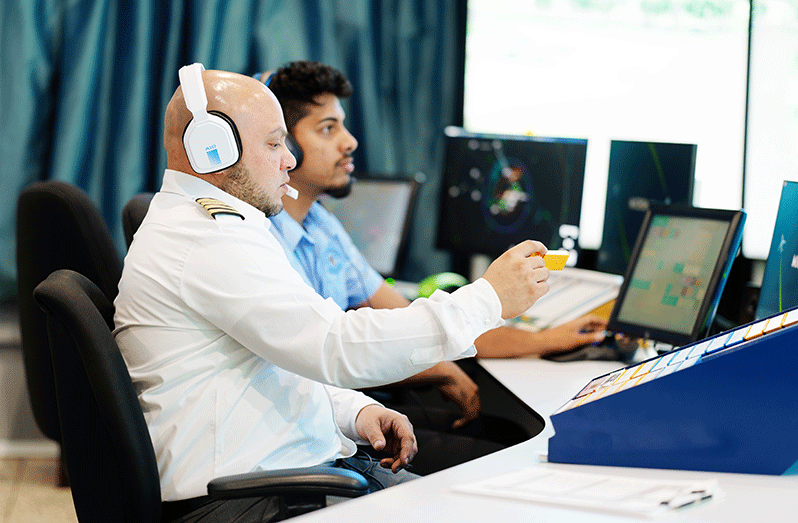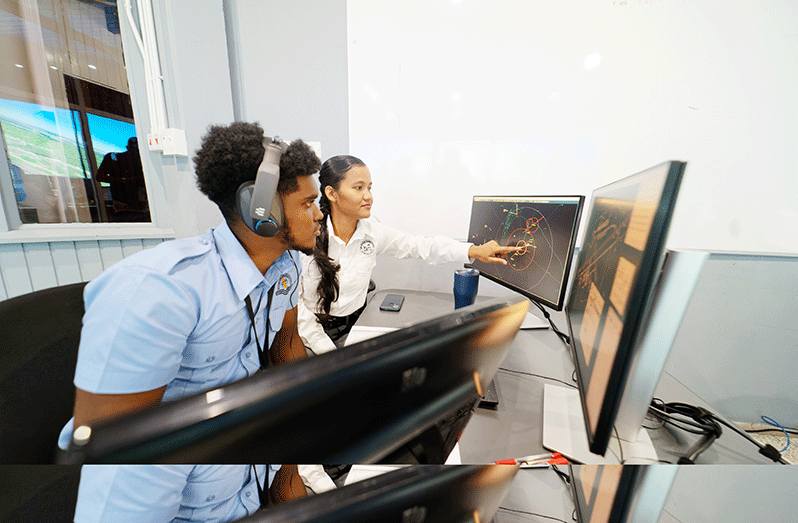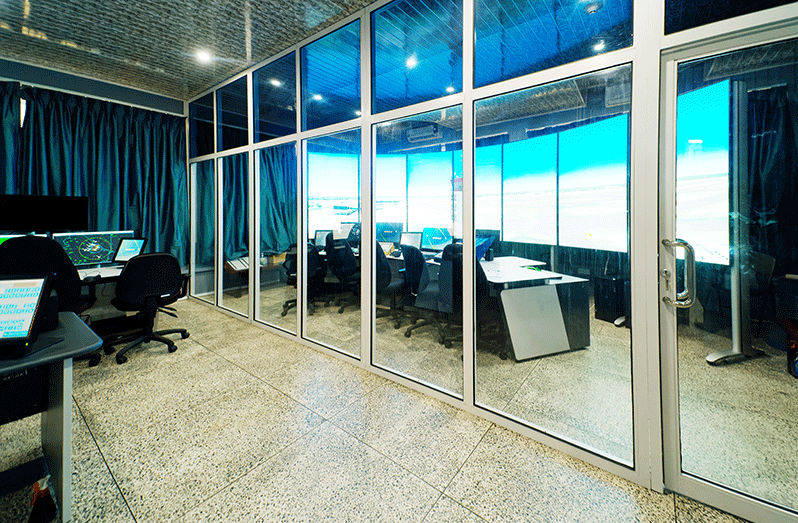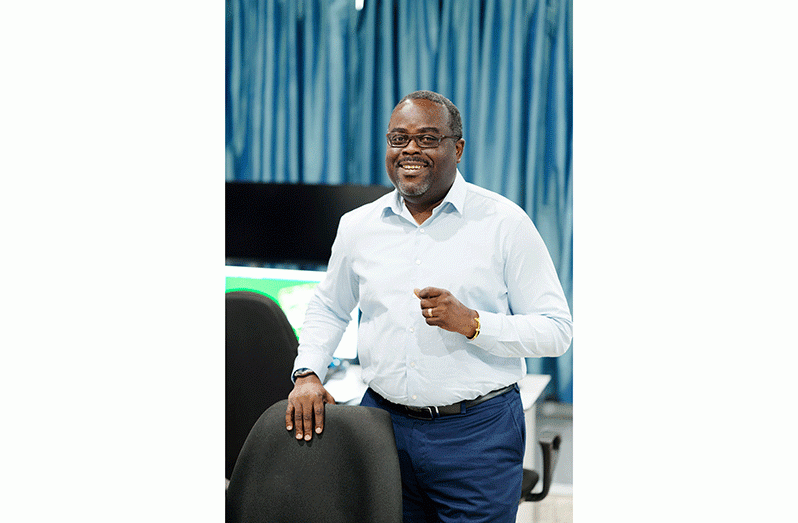THE idea of aeroplanes, flights, and aviation sparks enthusiasm in a multitude of people. However, the realm of aviation is frequently perceived as a pursuit primarily undertaken by the privileged. Contrary to that belief, the principal of the Civil Aviation Training school states otherwise. The school was established several years ago and has subsequently witnessed the introduction of diverse newer programmes.
The International Day of the Air Traffic Controller is being observed today and celebrates men and women who work 24/7 and 365 days of the year to help make air travel the safest possible mode of transport.

Today is a day when to say thanks and let everyone know that an air traffic controller is with them on every flight, throughout the journey from departure, to cruise and the subsequent arrival phase of flights.
Meanwhile, Principal Vân Doimen emphasized the collaborative efforts between the school and the Government of Guyana to develop the educational programmes offered at the institution.

He stated that, “The government has expressed an interest in getting involved in more types of aviation training. To give youngsters coming out of school a chance to get into aviation in other disciplines. That being piloting, engineering, flight attendants or flight dispatchers. We are moving in that direction.”
Vân Doimen has been principal of the school for just over a year, but has been involved in the management of the school for over seven years.
He shared that, “I am an air traffic controller. I joined air-traffic services in 1992. I was trained as an air traffic controller in 1997 and I have been working as an air traffic controller since I still practise, I still hold a licence, but my main functions are the management of the Civil Aviation Training School and the coordination of several training programmes we have to offer at the school.”
The work done at the Civil Aviation Training school plays a major role in the advancement of aviation in Guyana.
Mr Van Doimen explained the importance of the institution, stating that, “It is unique because it is the only school that offers training in air-traffic control in Guyana. We are specific to air navigation in the sense that we are a part of the civil aviation authority and our role is to train the persons coming in that want to get involved in air traffic control. No one could go to another school in Guyana to get trained as an air traffic controller.”

One major factor taken into consideration in the development of the school was making it easily accessible by the Guyanese populace.
As such, the requirements for entry into the training school is the same as any other tertiary-level institution. “The requirements are essentially five CSEC passes, and you must have passes in maths and English as well. If you have a background in geography and IT subjects; that is certainly an asset, “ stated the principal.
Once candidates are shortlisted, they are required to go through an assessment.
“Once we shortlist you, we take you through a period of aptitude testing. We ensure you have the requisite situational awareness and simulation capacity. Once you are successful at the aptitude testing then you do the personal interview. And then you join the batch and we train you thereafter,” Principal Van Doimen explained.
The work taught at the one-of-a-kind facility is unlike anything done anywhere else in Guyana. The subjects and things learnt are drastically different from that of a conventional school. “It is totally different from what you would be taught in a normal classroom.” Stated Van Doimen. He further went on, saying, “We do subjects like aircraft, IKO, we tech people about the International Civil Aviation Organization. “
In order for the participants to continue further, they must maintain a particular pass mark. “At the entry level we do about 14 or 15 subject areas. And what is important is that in order for you to progress you must be able to pass those subject areas with a 70 percent pass mark.” Van Doimen explained.
Going through the complex process the school has for its trainees to become graduates, the principal stated that, “They will proceed with what is called on the job training. Where we put you in the facility to work alongside an on-the-job training instructor. If you are found efficient you are checked out and appointed an assistant air traffic controller or an aeronautical information services officer.”
The processes and work done at the school has been proven to be working as the school reported a 100 percent pass rate among their last batch of graduates. The school has also seen an influx of new applicants. This wave of Guyanese youths being interested in aviation stands as not only a test to the school, but also plays a role in the advancement of aviation in Guyana. Van Doimen shared that, “During the last six to seven years we have trained approximately 300 persons at various levels. The school has definitely catapulted within the last several years.”





.jpg)








